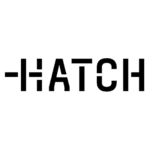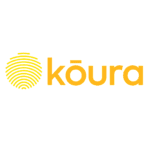Building your doomsday portfolio with Jim Rickards
Post-it notes be damned, we sit down with international powerhouse Jim Rickards to discuss the passive aggressive portfolio perfect for “The New Great Depression”, how revaluing gold could be the escape route for the developed economies, and the irrational gap between Wall Street and Main Street.
“Reality always wins. That gap is going to close. There will be a stock market crash, but not necessarily tomorrow.”
I doubt it’ll take mental gymnastics for listeners to figure out which “gap” it is that Jim Rickards refers to here. Even for the most casual of observers, the United States’ bullish stock market growth feels out of step with the reality of a country hamstrung by a year long pandemic.
“The stock market has never been more detached from the real economy, ever,” said Rickards.
In mid-2019 Rickards wrote an eerily prescient book titled Aftermath: Seven Secrets of Wealth Preservation in the Coming Chaos, which outlines how and why our financial markets are being artificially inflated and the ways investors can protect themselves against the inevitable demise.
So when Rickards says with certainty we’re going to see a major market correction, you should be wary of betting against him. Betting either way of course isn’t advised either way – none of us would likely pick the timing well enough.
If there is a major financial collapse coming though, and more important for us – how can the everyday investor protect themselves and their wealth?
Now, on to what I would call Jim’s ‘Passive-Aggressive Portfolio’ :
Gold: 10%
A lot, right? Watching the Gold price over the last year, it’s easy to see why he’s so hell bent on the shiny stuff, but Rickards explanation is more sophisticated than picking the next big thing.
According to Rickards, Gold is a hedge for both a financial collapse, and a market rebound.
“There’s only one way for the central bank to encourage spending: Raise the dollar price of gold.”
In 1933 FDR raised the dollar price of gold by 70%, which had a powerful reflationary impact on the economy, and was fundamental in helping pull them out of The [original] Great Depression. Rickards argues it’s the best solution to the issue of the current day, too.
In his new book, The New Great Depression, Rickards argues that if the reserve bank fails to do this, the economy will fall into chaos. Chaos, as we know, is great for the price of gold. Basically, Rickards sees buying gold as a hedge both ways.
“Gold will go there either way. It’ll either go through some chaotic collapse in trust for paper currencies, or it’ll get there in a reasoned way by design through central banks and monetary policy.”
Cash: 30%
Not only is that a lot, most of us are conditioned to think we should decrease our cash holding when interest rates are super-low. I would have normally thought this amount would also be too high, for reasons mentioned above as to why you would want gold (a collapse in confidence of our paper currency).
“We could be facing deflation, in which case you give yourself optionality,” said Rickards.
I think what he means here is with cash during this time, you have a call option effectively on opportunity. When markets pull-back, like big time, people need to sell at any price. If you’re there ready and waiting (and you have a bit of courage), you could take the ground others leave behind
The rest: you choose
For the remaining 60%, Rickards is less prescriptive, but he does recommend some combination of residential real estate in attractive cities, high grade government bonds, and some exposure to equities. Interestingly, he’s not a fan of commercial real estate.
Where to from here?
For my generation and younger, I think we need to ask some challenging questions around how we’re going to build wealth knowing what we know today. Are we still going to follow old methodologies that are tried and true, or are we going to adopt new strategies in the hope this could provide us an edge in the new world to come?
If you also believe that transformation is coming, the good news is that there is something we can do. Whatever strategy you have, will it be durable, all things considered? With equity markets, even our monetary system, I think there’s a growing chance we’re either in the eye of the storm or in the calm before the storm. Either way, things may soon get shaken, so perhaps investors do need to think about how to get themselves ready.
The NZ Everyday Investor is brought to you in partnership with Hatch. Hatch, let’s you become a shareholder in the world’s biggest companies and funds. We’re talking about Apple and Zoom, Vanguard and Blackrock.
So, if you’re listening in right now and have thought about investing in the US share markets, well, Hatch has given us a special offer just for you… they’ll give you a $20 NZD top-up when you make an initial deposit into your Hatch account of $100NZD or more.
Just go to https://hatch.as/NZEverydayInvestor to grab your top up.
____________________________________________________________
The NZ Everyday Investor would also like to acknowledge the support of kōura.
Most people fixate on just fees or historical returns when trying to choose a KiwiSaver fund. But professionals know there’s the third, arguably more essential component to consider – asset allocation. kōura’s digital advice tools will build you a KiwiSaver portfolio that has the perfect asset allocation just for you. Of course you could also just choose your own KiwiSaver portfolio with them too. Give them a try and see what your ideal KiwiSaver asset allocation looks like for you.
___________________________________________________________
Like what you’ve heard?
You can really help with the success of the NZ Everyday Investor by doing the following:
1- Tell your friends!
2- Write a review on Facebook, or your favourite podcast player
3- Help support the mission of our show on Patreon by contributing here
4- To catch the live episodes, please ensure you have subscribed to us on Youtube:
5- Sign up to our newsletter here
NZ Everyday Investor is on a mission to increase financial literacy and make investing more accessible for the everyday person!
Please ensure that you act independently from any of the content provided in these episodes – it should not be considered personalised financial advice for you. This means, you should either do your own research taking on board a broad range of opinions, or ideally, consult and engage an authorised financial adviser to provide guidance around your specific goals and objectives.
_____________________________________________________________________________







